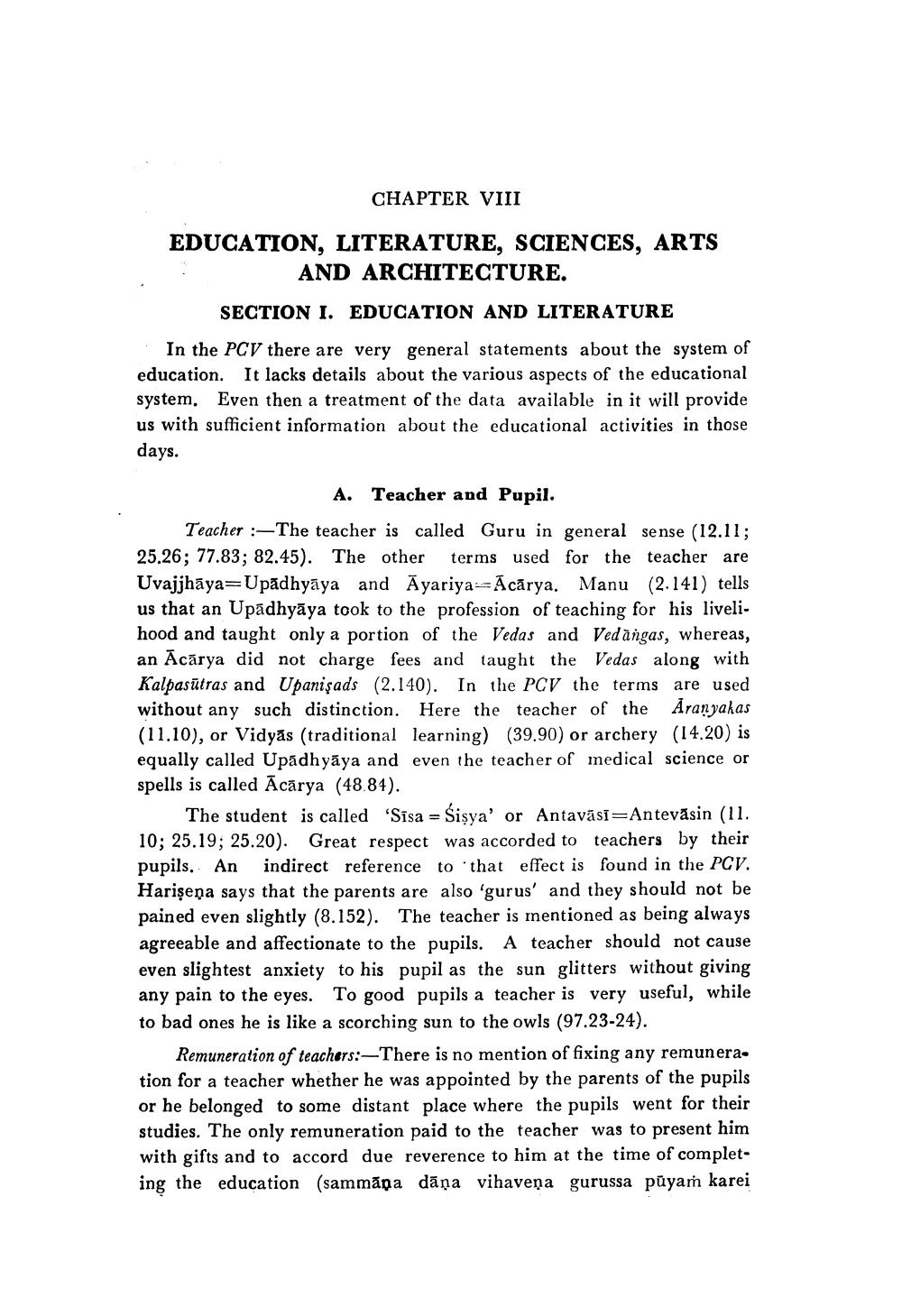________________
CHAPTER VIII
EDUCATION, LITERATURE, SCIENCES, ARTS
AND ARCHITECTURE. SECTION I. EDUCATION AND LITERATURE In the PCV there are very general statements about the system of education. It lacks details about the various aspects of the educational system. Even then a treatment of the data available in it will provide us with sufficient information about the educational activities in those days.
A. Teacher and Pupil. Teacher : The teacher is called Guru in general sense (12.11; 25.26; 77.83; 82.45). The other terms used for the teacher are Uvajjhāya=Upadhyāya and Ayariya-Ācārya. Manu (2.141) tells us that an Upādhyāya took to the profession of teaching for his livelihood and taught only a portion of the Vedas and Vedāngas, whereas, an Ācārya did not charge fees and taught the Vedas along with Kalpasūtras and Upanişads (2.140). In the PCV the terms are used without any such distinction. Here the teacher of the Aranyakas (11.10), or Vidyās (traditional learning) (39.90) or archery (14.20) is equally called Upadhyāya and even the teacher of medical science or spells is called Ācārya (48.84).
The student is called 'Sisa - Śişya' or Antavāsī=Antevāsin (11. 10; 25.19; 25.20). Great respect was accorded to teachers by their pupils. An indirect reference to that effect is found in the PCV. Harişena says that the parents are also 'gurus' and they should not be pained even slightly (8.152). The teacher is mentioned as being always agreeable and affectionate to the pupils. A teacher should not cause even slightest anxiety to his pupil as the sun glitters without giving any pain to the eyes. To good pupils a teacher is very useful, while to bad ones he is like a scorching sun to the owls (97.23-24).
Remuneration of teachers: — There is no mention of fixing any remunera. tion for a teacher whether he was appointed by the parents of the pupils or he belonged to some distant place where the pupils went for their studies. The only remuneration paid to the teacher was to present him with gifts and to accord due reverence to him at the time of completo ing the education (sammāņa dāņa vihaveņa gurussa pūyam karei




